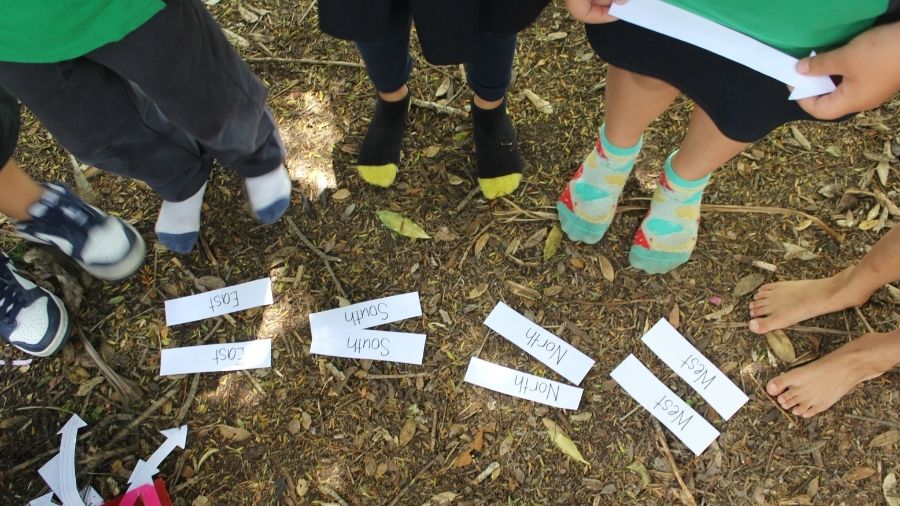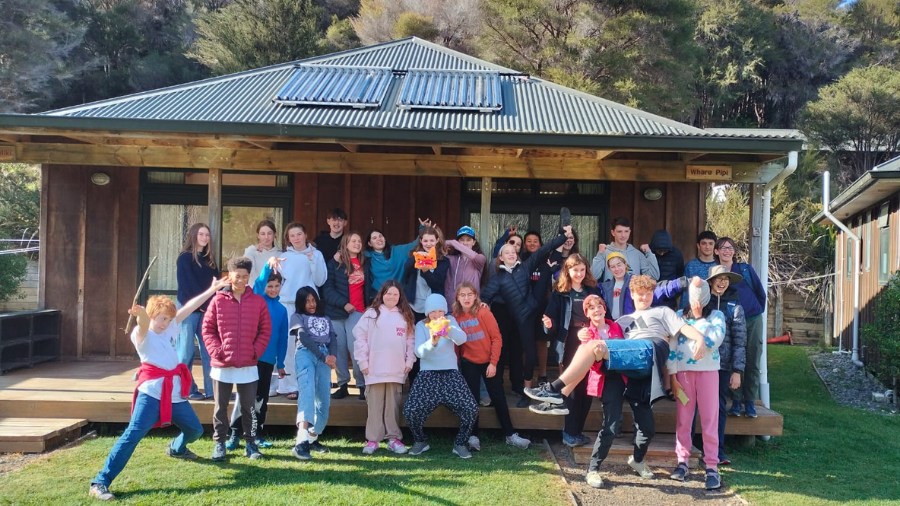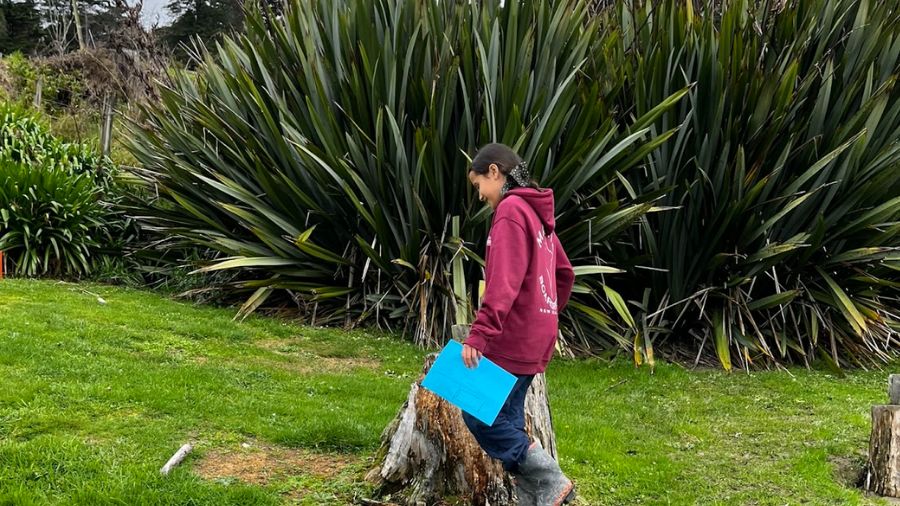Support to navigate our climate-changed communities.
Climate change has become a lived reality for many communities in Aotearoa who have been affected by extreme weather events. As educators, the young people we work with will have seen the news, or experienced the impacts of these events, and will be asking why and wanting to know what can be done.
We know it can be overwhelming for kaiako to sift through all the information, so we've created this collection of articles, resources and videos, focused on positive and hopeful approaches to climate education and action in Aotearoa.
Moving forward with respect and hope
The concept of climate adaptation has quite rightly dominated media coverage since the flooding and cyclone damage in 2023. This is an emotional and complex aspect of our response to climate change, and it's worth taking some time to explore different perspectives, knowledge systems and evidence, before you start exploring this with ākonga.
On E-tangata, Lillian Te Hau-Ward, who leads the local response and Civil Defence in Tokomaru Bay, tells the story of her community in the article Cyclone Gabrielle: now is the time for mana motuhake.
Dr Shaun Awatere also explores this topic and discusses the importance of mātauranga Māori in our national response to climate change, in an E-tangata article from February last year: Confronting climate change means sharing power.
What’s empowering is if you have whānau looking into the past and learning from how our tīpuna used to respond to climate impacts on specific locations. Our tīpuna were smart enough to say: “Well, this place is very vulnerable during this season. Let’s be careful and relocate up to a safer environment.”
- Dr Shaun Awatere
Ako magazine featured an article by Veronika Meduna called Hope and a big dose of reality: teaching climate action, which explores this topic from the perspective of teachers and communities.
Climate change adaptation and mitigation: why we need both, by Anna Rawhiti-Connell, clearly summarises some key information about these different but related processes, in her article for The Spinoff.
Bernard Hickey wrote an opinion piece, Will this be the climate crisis event that finally spurs action? published on The Spinoff. He provides links to international and local research exploring the connections between our values, beliefs and actions.
We also recommend this opinion piece by author Rebecca Solnit, who asks What if climate change meant not doom, but abundance?
Where to Start: Climate education resources
What does climate education actually look like? Before you start delving into the complex science of climate systems, it's important to think about what's appropriate for the ākonga you work with and the issues that are most important in your local community. Rachel Bolstad, researcher at NZCER, explains some key things for educators and parents to consider in the following RNZ interview from 2021.
Helping children cope with climate anxiety (Listen - 17 mins)
“By engaging in practices like gardening, thinking about what we do with our food waste, composting, worm farming and those things, although they might seem small, they actually have a direct connection to climate, because there are greenhouse gas emissions that can be reduced through those actions.
So you don’t necessarily need to know about greenhouse gas impacts to actually do those practices, and there’s a lot of value and reward and benefits to health and wellbeing through just engaging with those actions. There’s a lot of research that shows when we are connected with nature, that has a direct benefit on our health and wellbeing.” - Rachel Bolstad
You can read the research summaries from NZCER's climate education project here, including topics such as What can schools do? and Connecting climate change with place and culture.
Younger Learners
If you're involved with national programmes such as Enviroschools, Para Kore, Garden to Table, or local projects that involve gardening, planting trees and reducing waste, these are excellent contexts for younger ākonga to take climate action. Get in touch with one of these organisations by clicking on the links above, or search by location in our Providers catalogue to find support in your area.
Focus on spending regular time in nature and use wellbeing activities to help support ākonga through difficult times:
- Sparklers have a range of activities for ākonga in Yrs 1 - 8
- Learning in Nature activities from the Department of Conservation
Older Learners
Teachers of students in Years 6 - 10 can use these recently updated resources, based on years of work in Aotearoa schools and evidence-based approaches:
Watch the video on the right to find out more about these resources and hear from student Keegan Verster, who speaks about the wellbeing and learning benefits from his involvement with the programme in Ōtautahi.
NIWA has also recently developed an inquiry unit and online 'serious game' focused on climate adaptation: Climate Adaptation teaching resources
Earth Dreamers supports teachers and students to explore the complex global issue of the climate crisis within their local contexts in ways that foster joy and agency, curiosity, and hope.
Pūtātara explores climate action through a place-based lens, with inquiry questions and a selection of activities focused around kaitiakitanga.
Science Learning Hub have an excellent range of resources that support learners to engage with climate change through te ao Māori:
- Why climate change matters to Māori
- Māori ways of knowing: weather and climate
- Earth systems and climate change
You can also search our Resource catalogue using the filter 'Rangi | Climate, Air, Sky' to find more resources.
Empowering Rangatahi
Educators working with secondary students and youth in the wider community have an important role to play in supporting and facilitating student-led actions, to help support hope and agency. Watch these videos to get inspired:
We Asked to Be Heard (6 mins)
Tells the story of students in Ōtautahi who submitted on the local council's coastal adaptation framework.
High Tide Don't Hide (1 hour 20 mins)
This documentary follows the young people involved with the first School Strike for Climate movement in Aotearoa.
You can support students to attend the School Strike 4 Climate.
Encourage students to explore the range of organisations in Aotearoa focused on advocacy and climate action, such as Pacific Climate Warriers, 350 Aotearoa, Te Ara Whatu and Generation Zero, by sharing the NZ Climate Action Network website.
Some ideas for supporting older students with wellbeing | hauora can be found on the Whenua Iti Outdoors website, including activities and videos created in collaboration with rangatahi, exploring how connection with nature can improve our wellbeing.
For further information and ideas, check out these related Spotlights and Professional Learning pages on our website:
- Street Art: Children's Voices and Climate Action
- Active Travel Action Improves Safety and Environment
- Rākau | Trees in our Learning Spaces
- Climate Education webinar (Rachel Bolstad, NZCER and teachers from Ao Tawhiti)
- Research: Nurturing secondary students' hope and agency
Stay informed and help support climate education advocacy by visiting the Aotearoa Climate Education Coalition website and signing up for the newsletter.






